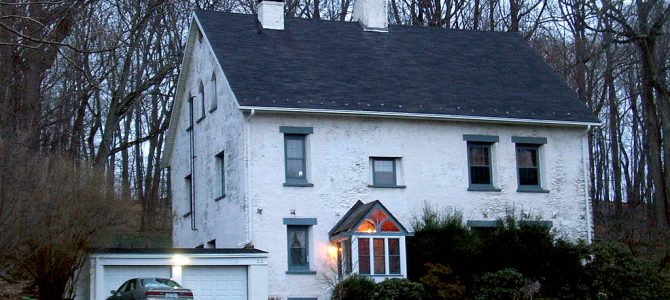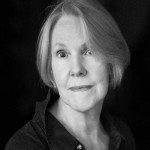
Dejection runs high in Clintontown. To hear local press tell it, November 8 was a day of infamy. On that date, a worthy neighbor lost her rightful bid for the presidency to an undeserving homo-and-islamophobic racist, and Mrs. Clinton’s hometown lost its place in the sun. It was not supposed to end like this.
Election Day in Chappaqua had been festive, almost giddy. Women wore “Make History” buttons. A pantsuit flash mob erupted at the train station. Some women came costumed as suffragettes. A few sported “Nasty Woman” T-shirts. All were euphoric at being only hours away from cheering a Hillary landslide. The Y chromosome was finished. This would be the night to open that 1984 Dom Pérignon in front of a flat-panel TV and watch the glass ceiling shatter into bits.
Even middle schoolers were in on the excitement. Kids went to school that morning with Hillary’s campaign logo painted on their faces. Mid-afternoon brought them streaming into Starbucks, Pizza Station, the cookie boutique, and the frozen yogurt store to celebrate allegiance to the first female POTUS. Grown-ups gathered that evening in Chappaqua Tavern for an election watch party with members of the Hillary-loving town board. It was a great day to be alive.
Then came the countdown and the Morning After. The hamlet was stunned: where did destiny go? The heterogametes had won. Kids had to wash their faces. So did a few moms. The local frame shop hung an artsy rendition of a Victorian mourning portrait of Hillary in its window. That life-sized cardboard effigy of Mrs. Clinton—propped under a canopy outside Citibank one sunny campaign Saturday—was a sad relic now. After the high anticipation of a Clinton triumph, letdown was intense.
A Punctured Profile
Commercially printed blue and white signs began springing up on lawns and traffic islands: “Thank you HILLARY CLINTON for your decades of public service.” Inside Chappaqua, a local zine, decked its winter issue with a cover photo of Hillary, eyes lifted skyward toward what might have been. Floating over her head, the caption reads “Pride and Gratitude.”
Like Piglet noticing that his Very Small Heart could hold a large amount of Gratitude, residents are thankful for her Presence here among us. The Clintons, after all, put this quiet, wooded hamlet on the national map. Prior to their arrival, Chappaqua had kept a low profile. Its name never appeared in newspapers. Instead, it took cover under New Castle, the larger township to which it belongs. By now, though, all modesty is gone. Seventeen years on a drip-feed of mind-altering cachet has induced delusions of grandeur.
Two weeks before the election, Grace Bennett, publisher of Inside Chappaqua, crowed: “Chappaqua has been on the world stage for many years now. . . . The powerful presence of this world famous couple has become part and parcel of our town’s identity, and I think that phenomenon will only be enhanced and solidified if Hillary Clinton becomes the nation’s first woman president.”
Dawn Rosen, president of the local Chamber of Commerce, was ecstatic with visions of Chappaqua’s planetary renown: “This continuous media interest and focus on the Clintons in our town’s shops and restaurants couldn’t be better for our branding and for creating awareness of Chappaqua as a destination town for shopping and dining. These opportunities for national (and global!) exposure can only increase exponentially once we become–historically and uniquely–home to two U.S. Presidents!!”
A Two-President Town that Wasn’t
With the Clintons came ostentation. The familiar brick-and-clapboard downtown obscured the town’s stature. It needed glitzing up. This past September, the New Castle Town Board approved a costly beautification project. What had begun as a practical underground infrastructure project (e.g., replacing failing waterlines) turned into an above-ground enhancement scheme fueled by dreams of Chappaqua as a pilgrimage site.
The town board, swollen like a puff adder on Chappaqua’s pending global significance, devised a Streetscape Improvement Project that promised “a brand-new welcome mat for visitors.” Each of our three unfrequented bus stops will gain a roofed shelter. (Non-smoking, for sure.) Our modest downtown will get a 3,000-square-foot “seating area.” Nothing more at all is needed for the sparse scatterings of parents hanging around to watch their kids play soccer at the downtown ball field. But our public servants were hot to grandstand for the tourist waves that would roll in for inaugural celebrations.
Mammon and sugar plums danced in local heads. Rosen admitted as much: “Seeing Chappaqua’s store fronts on a national TV newscast or in a top daily newspaper is not only thrilling for all of us who live and work here, but it serves as a very effective means for promoting our town and its businesses.”
Chappaqua Station, a café in the historic Metro-North station house and prime stop for expected pilgrims, began a flurry of needless sprucings-up this past fall. Bank of America distinguished itself by covering its traditional Yankee whitewash with a bilious orangey blush. Old House Lane, Mrs. Clinton’s cul-de-sac, together with adjoining Green Lane was announced closed to traffic for security appropriate for a sitting president.
We stood poised for an historical first: a two-president town. Here come Fodor’s, Frommers, and a Wikitravel app. Gossip about a monument was in the air. Bronze or marble? Where to put it? At the train station? On the Town Hall lawn? Or maybe dedicate a wing to the Clintons in the soon-to-be-expanded library?
Hillary’s drubbing landed a blow on neighborhood morale. Everyone who moved here after 1999 to share an upwardly mobile ZIP code with world-class celebrity was chastened. Suddenly the air had gone out of 10514. Now comes a struggle to heal, to lift chins off the floor.
What Can Replace the Loss of Our Souls?
Therein lies a key theme of our cultural life, one that testifies to Andrew Breitbart’s insistence that “politics is downstream of culture.” The culture on exhibit is a moral void in which goodness and concepts of virtue have no bearing, make no demands. There are only feelings. Retreat into the therapeutic substitutes for lost faith in a moral order centered on principles outside our own devising and oblivious to our feelings.
Let me illustrate with an example close at hand. Jodi Baretz is a psychotherapist and mindfulness coach at a nearby center for holistic health and healing. She runs a “mindfulness bootcamp” for moms with time to take lessons in stress reduction. Evidently town moms needed help getting themselves together after November 8. Baretz’ local column, “Post-Election Anxiety,” features strategies for Hillary supporters: “After the shock, denial, anger, etc., we have to acknowledge that this is happening, allow ourselves to feel our feelings, but then we also do whatever is in our control to fight for what we believe.”
The coach admits to a gnawing in the pit of her stomach, a sense of impending doom. She is saddened that “our deserving neighbor” failed to conquer male privilege. She is fearful of a president who ran a campaign based on anger and hate: “I’m terrified by the racists and bigots he energized and the actions they might take. I have followed this election campaign holding my breath, wanting it to be over to breathe a sigh of relief. Unfortunately, now that it is presumably over, all I want to do is turn back time.”
Luckily, mindfulness offers a beacon to the tempest-tossed in the town’s five nail salons. Baretz tends the huddled masses while they lift a Starbucks chestnut praline latte with perfectly steamed micro-foam to quivering lips: “In my mindfulness boot camp group today, everyone was shocked, distraught, so we explored how mindfulness can help us cope with post-election blues.”
But Politics Can’t Save Your Soul
Borrowing from the Twelve Steps, our coach insists on acceptance as the start for recovery from post-election trauma. We have to pick ourselves up and live with what we cannot control. Overall, that is good advice. But Baretz’ variant of it wanders off into implicit condescension for those mistaken others who voted wrongly. As she states in a corresponding post on her blog: “If you grew up in a poor rural area in a male dominated household, you may not feel the same way as someone who grew up in a liberal household in the city.”
Unpack the assumptions stuffed into that, and class bias spills all over the floor. So does feminist conceit. By inference, the shining liberal household is urban, affluent, and—preferably—female-dominated. Here is elitist self-regard taking cover in mental health counseling.
The column’s second suggestion to stiffen lips—ones perfectly outlined with a Laura Mercier lip pencil and colored with Guerlain’s hydrating and plumping tinted lip balm at $37 a stick—is to learn how to become non-judgmental.
Had boot camp moms been a bit more judgmental to begin with, they might have seen through the Arkansas grifter before she left Little Rock. But that is not the kind of judgment our mindfulness counselor has in mind. Rather, we are not to judge ourselves “for experiencing feelings that are real.”
Best of all, according to Coach Baretz, as we “practice non-judgment and tolerance,” we free up inner space for the possibility of “our party becoming stronger than ever and more people becoming activists for change.” Our party. A telling slip, that. The Inside Press mails issues to all residents in town, not simply to registered Democrats. Yet Baretz assumes a wholly like-minded audience.
Take her presumption as a warning: One election will not reverse the cultural drive to produce within ourselves those banal inner gods believed to cushion us against a world that, in liberal eyes, just changed for the worst. A turnaround in the current state of moral understanding is not won by politics.









